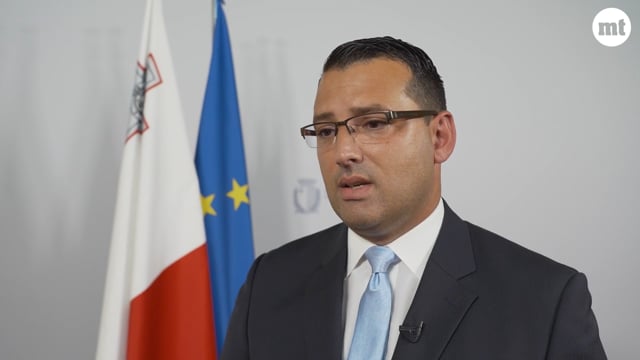[WATCH] Constitutional protection of journalists and sources, recognising principle of free journalism
Protection of sources, long held sacred tenet of journalism, is now elevated to Constitutional protection

The minister for justice has presented three Bills that will be presented to the House, after receiving feedback from a government-appointed committee to analyse the state of journalism in Malta.
The Bills will not be presented for public consultation, as requested in a letter to the Prime Minister by newspaper editors and journalists.
Instead, the laws will be presented in the House where any amendments will be discussed at committee stage. However, it is clear that any proposals from the Opposition will be hard to advance at committee stage.
“The prime minister held discussions with the Institute of Maltese Journalists, international NGOs, as well as the Caruana Galizia family… this was the government’s consultation before the Bills were drafted. These Bills were also presented in public to the media experts commission, which had all liberty to hold its own consultations with other parties,” Attard said when asked to justify the reason to take the Bills straight to parliament.

The press experts committee was set up as recommended by the Public Inquiry into the assassination of Daphne Caruana Galizia, which Mallia also chaired.
The proposed laws will request Parliament to recognise the Constitutional protection of media sources, a long-held sacred tenet of journalism, now enjoying the highest form of protection.
The Constitution will also recognise the Fourth Estate in its exercise of free journalism, to protect freedom of expression.
There will be redress of journalists for bodily harm, recognised as an aggravated crime in the Criminal Code, but none it seems for threats and harassments.
Precautionary warrants have been removed from defamation cases, showing the government has changed its position on this issue.
The proposed laws will include the setting up a permanent committee for the security of the press, together with the police and the Security Service.
While court tariffs for defamation cases will not be paid upon the initial presentation of a reply by the defendant journalist, the proposal does not yet address abusive lawsuits.
The courts will have the right to deem defamation suits “manifestly unfounded” to dismiss such lawsuits; deny execution of SLAPP suits in Malta when these breach the right of freedom of expression; limit the execution of any foreign court sentence for damages so that these are equivalent to what is allowable at law in Malta.
A new Constitutional amendment will recognise the freedom of the press as a public guardian together with the free exercise of journalism.
In a letter signed last week by over 100 editors, journalists, academics, artists and others, Prime Minister Robert Abela was asked “to immediately publish the advice you have already received from the experts whom you appointed and, before you present any legal proposals to Parliament, to publish the government’s intentions for open and effective public consultation.”
The parents of Daphne Caruana Galizia, Michael and Rose Marie Vella, today also issued a statement backing the call for a transparent and fully open process of reform.
The press experts committee was composed of Matthew Xuereb, assistant editor of the Times of Malta and president of the Institute for Maltese Journalists; Kurt Sansone, online editor of MaltaToday and IGM secretary-general; media expert Prof. Carmen Sammut; former Malta Press Ethics Commission chair and lawyer Kevin Dingli; Mediatoday owner Saviour Balzan; Malta Independent former editor-in-chief Neil Camilleri; and criminologist Prof. Saviour Formosa.






















